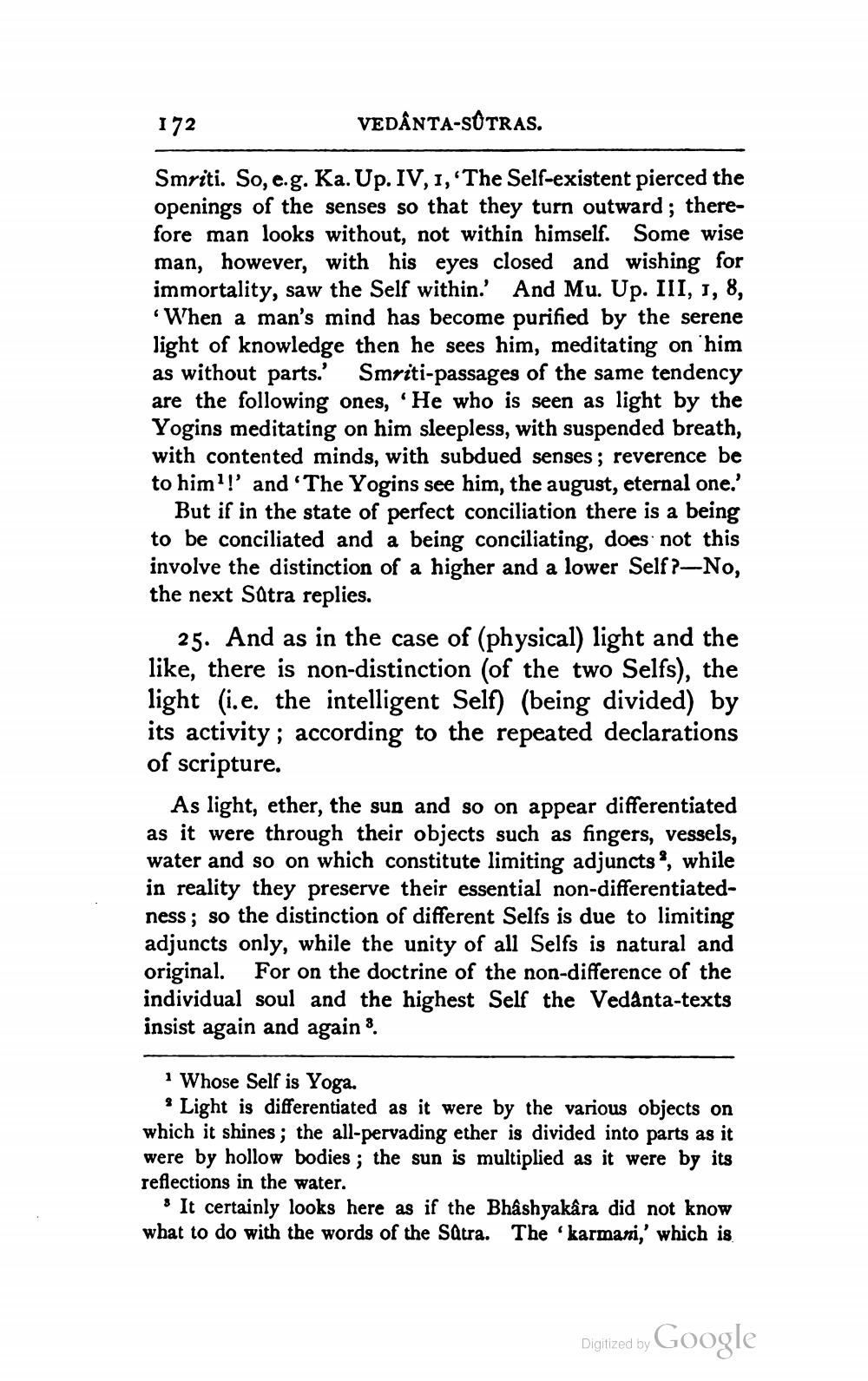________________
172
VEDÂNTA-SOTRAS.
Smriti. So, e.g. Ka. Up. IV, 1, 'The Self-existent pierced the openings of the senses so that they turn outward; therefore man looks without, not within himself. Some wise man, however, with his eyes closed and wishing for immortality, saw the Self within.' And Mu. Up. III, 1, 8,
When a man's mind has become purified by the serene light of knowledge then he sees him, meditating on 'him as without parts.' Smriti-passages of the same tendency are the following ones, "He who is seen as light by the Yogins meditating on him sleepless, with suspended breath, with contented minds, with subdued senses; reverence be to him?!' and 'The Yogins see him, the august, eternal one.'
But if in the state of perfect conciliation there is a being to be conciliated and a being conciliating, does not this involve the distinction of a higher and a lower Self?—No, the next Satra replies.
25. And as in the case of (physical) light and the like, there is non-distinction (of the two Selfs), the light (i.e. the intelligent Self) (being divided) by its activity; according to the repeated declarations of scripture.
As light, ether, the sun and so on appear differentiated as it were through their objects such as fingers, vessels, water and so on which constitute limiting adjuncts, while in reality they preserve their essential non-differentiatedness; so the distinction of different Selfs is due to limiting adjuncts only, while the unity of all Selfs is natural and original. For on the doctrine of the non-difference of the individual soul and the highest Self the Vedanta-texts insist again and again :.
· Whose Self is Yoga.
* Light is differentiated as it were by the various objects on which it shines; the all-pervading ether is divided into parts as it were by hollow bodies; the sun is multiplied as it were by its reflections in the water.
* It certainly looks here as if the Bhashyakâra did not know what to do with the words of the Satra. The karmani,' which is
Digitized by
Digized by Google




